The piano keyboard may consist of 52 white keys and 36 black ones—but when it comes to selecting the best from among the hundreds of incredible jazz piano albums that have been recorded, there’s no black-and-white answer. Nevertheless, we’ve come up with a list of 10 essential jazz piano records. It’s by no means exhaustive, but no fan should be without these classics. Enjoy!
Piano Starts Here
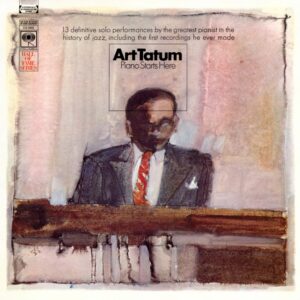
Artist: Art Tatum | Release Year: 1968
Personnel: Art Tatum (piano)
Why You Need This Album: It’s not crazy to say, as the album title suggests, that modern jazz piano began with Art Tatum. With just two hands, he produced a force equal to an entire rhythm section. Any jazz novice’s listening experience should begin with the burning “Tiger Rag,” which showcases his impeccable stride technique and advanced improvisational ideas that were far ahead of his time.
Purchase: iTunes | Apple Music | Spotify
Zodiac Suite
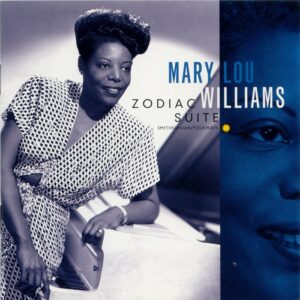
Artist: Mary Lou Williams | Release Year: 1945
Personnel: Mary Lou Williams (piano), Al Lucas (bass), Jack Parker (drums)
Why You Need This Album: Although she was also a prolific composer, Mary Lou Williams’s performances made her one of the most revered female figures in jazz. Every unique and introspective theme in her acclaimed Zodiac Suite pays tribute to a cast of notable personalities born during each sign of the zodiac, including Ben Webster, Dizzy Gillespie, and Billie Holiday.
Purchase: iTunes | Apple Music | Spotify
The Amazing Bud Powell
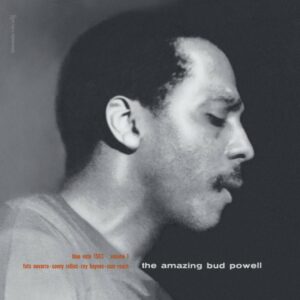
Artist: Bud Powell | Release Year: 1952
Personnel: Bud Powell (piano), Fats Navarro (trumpet), Sonny Rollins (tenor), Tommy Potter (bass), Roy Haynes (drums), Curly Russell (bass), Max Roach (drums)
Why You Need This Album: Combining recordings from two different but equally fruitful sessions, this album is chock-full of classic bebop anthems like “Ornithology,” “A Night In Tunisia,” and Powell’s own composition “Bouncin’ with Bud.” Despite including many alternate takes, this refreshing Blue Note release never feels repetitive, offering bracing renditions of time-honored jazz repertoire.
Purchase: iTunes | Apple Music | Spotify
Now He Sings, Now He Sobs

Artist: Chick Corea | Release Year: 1968
Personnel:
Chick Corea(piano), Miroslav Vitous (bass), Roy Haynes (drums)
Why You Need This Album: In this stunning breakthrough album—often considered his finest—piano luminary Chick Corea is joined by drumming magician Roy Haynes and master Czech bassist Miroslav Vitous for a soulful and adventurous record that foreshadows his significance as a composer and performer. Tunes range from the standard “My One and Only Love” and Thelonious Monk’s “Pannonica” to ethereal free improvisations like the title track and soon-to-be Corea staples “Windows” and “Matrix”.
Purchase: iTunes | Apple Music | Spotify
Concert By The Sea
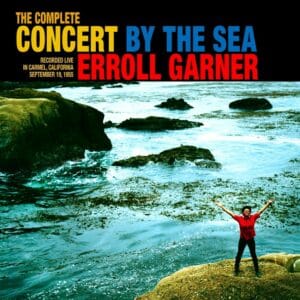
Artist: Erroll Garner | Release Year: 1955
Personnel: Erroll Garner (piano), Eddie Calhoun (bass), Denzil Best (drums)
Why You Need This Album: Possessing one of the most distinctive voices at the piano, Erroll Garner fashioned his own cornerstone of bop with this quintessential 1955 live album. Between the layers of rapturous audience applause thrive performances of pure, musical alchemy, securing Garner’s status as a jazz piano icon.
Purchase: iTunes | Apple Music | Spotify
Sunday At The Village Vanguard

Artist: Bill Evans | Release Year: 1961
Personnel: Bill Evans (piano), Scott LaFaro (bass), Paul Motian (drums)
Why You Need This Album: Evans puts forth his all on this dazzling live album, drawing support from LaFaro and Motian, who together rounded out perhaps his best-loved trio. This record is a classic—he brings an undeniable sensitivity to standards like “Alice In Wonderland” and “All of You,” and his masterful lyricism and effortless swing makes this one of the best records put out by the Vanguard (no small feat).
Purchase: iTunes | Apple Music | Spotify
Money Jungle
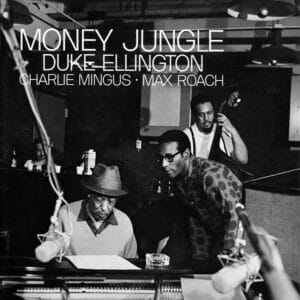
Artist: Duke Ellington | Release Year: 1963
Personnel: DukeEllington (piano), Charles Mingus (bass), Max Roach (drums)
Why You Need This Album: Despite being praised mainly for his big band endeavors, Duke Ellington’s trio work proves to be a treasure all its own. This collaboration between a young Max Roach and Charles Mingus with the seasoned band leader offers up a dazzling post-bop mishmash of a trio album. Duke’s original compositions offer a free canvas for exquisite improvisation, blending the styles of each musician yet preserving their individual artistry, all while securing Duke’s spot in the pantheon of jazz greats.
Purchase: iTunes | Apple Music |Spotify
Solo Monk
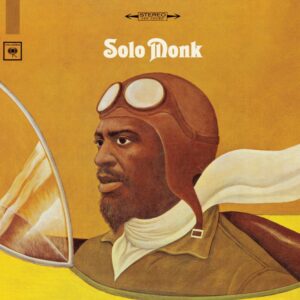
Artist: Thelonious | Release Year: 1965
Personnel: Thelonious Monk (piano)
Why You Need This Album: This 1965 album showcases the ever-inventive, angular, and spacious playing of Monk, playing here without a rope. His inclusion of fierce originals alongside innovative takes on standards like “Sweet and Lovely” prove his diversity as a player and his truly singular sound at the piano.
Purchase: iTunes | Apple Music | Spotify
The Koln Concert

Artist: Keith Jarrett | Release Year: 1975
Personnel: Keith Jarrett (piano)
Why You Need This Album: Keith Jarrett’s genius is shown not only by his clear command of the jazz tradition but also in how he deviates from it. The Koln Concert recording epitomizes his blurring of genre borders using hypnotic vamps and endless improvisation, creating an almost religious experience for the listener. While receiving mixed reviews from die-hard jazz fans, this record is surely a testament to Jarrett’s remarkable sense of composition and momentous spontaneity.
Purchase: iTunes | Apple Music | Spotify
The Trio, Volumes 1-3
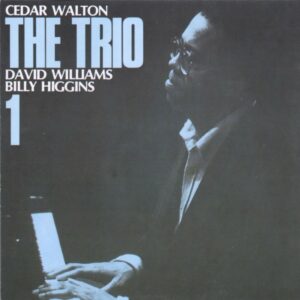
Artist: Cedar Walton | Release Year: 1985
Personnel: Cedar Walton (piano), David Williams (bass), Bill Higgins (drums)
Why You Need This Album: Despite being three different albums, all three are worthy of our list. The Trio boasts the essentials of straight-ahead swing, providing the foundation for Walton’s simple language and effortless improvisational feel. If you need something to tap your foot to, look no further than this exhilarating collection of trio records for your perfect dose of bop.